#mandarin study
Text

GUYS THIS HAS BEEN THE BEST WEEK OF MY LIFE I SWEAR. I THOUGHT THEY WOULDNT LET ME KNOW FOR A WHIIILE OMGOMG IM GOING TO TAIWAN
#studyblr#study blog#langblr#langblog#language learning#languageblr#chinese langblr#mandarin langblr#study abroad#taiwan#chinese language#mandarin chinese#mandarin studyblr#studyblr community#chinese studyblr#learning chinese#learn chinese#mandarin study#learn mandarin#studyabroad#exchange student#student life#uniblr#university#college
97 notes
·
View notes
Text
A Brief Introduction
In the first post on this blog I introduced myself as a Twitter refugee… and nothing else. In truth, I am still active on Twitter, and while I don’t think that site will be going down in the next few days I do feel that the writing's on the wall. Even if Twitter as a service ultimately survives Elon’s madness it will be a very different place, with many worthy folk having scattered to the winds, signing up for this or that replacement.
I have chosen Tumblr.
Now that I am here and happily reblogging (with occasional original posts like this one sprinkled in), I suppose I should explain what I’m about and what to expect on my little corner of the Internet.
I have a variety of interests, but in this space I will mainly be posting and reblogging about three of them: language learning, outer space/space news, and (eventually) learning to draw. Of these three, it’s the language learning that will be of primary focus for me on this website for at least the short term, and I want to take a moment and share some of my ambition on this front.
- Language Learning -
I have recently begun the long, laborious, difficult, and satisfying journey of language learning. I have a list of languages I wish to learn. The two at the top of the list are Chinese (Mandarin) and Hindi.
I started learning Mandarin Chinese toward the end of August (你好。你怎么样?), and while progress has ultimately been slow I am at least making it. I’ve found myself somewhat surprised very early on in that it isn’t meaning or writing the characters I’ve struggled the most with, but tones and making sure I use the right tone when speaking. Right now I’m primarily going through Duolingo lessons and copying their sentences and translations for use in SRS repetition. Sometime down the line I’ll be going through Grammar lessons and trying to find ways to interact with native speakers for feedback - maybe starting with a tutor before anything?
I have not yet started learning Hindi, but I plan to soon. I will start along a similar path as with my Mandarin: Duolingo, then focusing on learning Grammar and eventual practice with other speakers - native, ideally.
Aside from reblogs, right now I think most of my posts on here will be questions. Maybe I’ll have comments on aspects of the language (does Mandarin really not have a general word for “brother” or “sister?”) or other things along those lines.
So, I would like to end this short introduction with some questions. Right now I plan to use two websites to get feedback from native speakers: LangCorrect and italki. The first is a place to post journal-style updates in your target language, then native speakers will offer corrections and advice, with the idea being that you offer corrections and advice to people learning your native tongue. The second is for direct interaction, and while I’m mainly looking at italki for tutors, I’m just happy to get good advice and corrections from any fluent speaker.
So, the questions! Are there other resources I could also be using? Are there alternatives to LangCorrect and italki that are as good or even better? Is the Duolingo bird going to kill me in my sleep? Thank you in advance for any advice you can give me.
#language learning#languageblr#introduction#introducing myself#mandarin study#hindiblr#mandarinblr#mandarin studyblr#hindi study#chinese langblr
13 notes
·
View notes
Text
50+ fundamental crime, suspense, & mystery Cdrama vocab words

I'm currently watching 《模仿犯》, so I was inspired to put together this list of essential vocab for 犯罪剧/悬疑剧/推理剧. I tend to gravitate towards dramas that fall into these genres.
I've sorted the words into categories. These were determined by vibes only. Definitions are adapted from MDBG, my loyal companion for nearly 10 years.
The Case
案子 ànzi - case / law case / legal case / judicial case
案件 ànjiàn - case / instance
办案 bàn'àn - to handle a case
破案 pò'àn - to solve a case
报案 bào'àn - to report a case to the authorities
命案 mìng'àn - homicide case / murder case
作案 zuò'àn - to commit a crime
现场 xiànchǎng - the scene (of a crime, accident etc) / (on) the spot / (at) the site
证据 zhèngjù - evidence / proof / testimony
真相 zhēnxiàng - the truth about sth / the actual facts
The Investigation
厘清 líqīng - to clarify (the facts) / clarification
线索 xiànsuǒ - trail / clues / thread (of a story)
细节 xìjié - details / particulars
痕迹 hénjì - vestige / mark / trace
追踪 zhuīzōng - to follow a trail / to trace / to pursue
追问 zhuīwèn - to question closely / to investigate in detail / to examine minutely / to get to the heart of the matter
排除 páichú - to eliminate / to remove / to exclude / to rule out
嫌疑 xiányí - suspicion / to have suspicions
怀疑 huáiyí - to doubt (sth) / to be skeptical of / to have one's doubts / to harbor suspicions / to suspect that
跟踪 gēnzōng - to follow sb's tracks / to tail / to shadow / tracking
不对劲 búduìjìn - fishy / wrong / not right
隐瞒 yǐnmán - to conceal / to hide (a taboo subject) / to cover up the truth
The Victim
被害者 bèihàizhě - victim (of a wounding or murder)
受害者 shòuhàizhě - casualty / victim / those injured and wounded
幸存者 xìngcúnzhě - survivor
���踪 shīzōng - to be missing / to disappear / unaccounted for
消失 xiāoshī - to disappear / to fade away
绑架 bǎngjià - to kidnap / to abduct / to hijack / a kidnapping abduction / staking
遗体 yítǐ - remains (of a dead person)
尸体 shītǐ - dead body / corpse / carcass
拯救 zhěngjiù - to save / to rescue
寻人启事 xúnrénqǐshì - missing persons notice
The Perpetrator
嫌疑犯 xiányífàn - a suspect
嫌疑人 xiányírén - a suspect
歹徒 dǎitú - evildoer / malefactor / gangster / hoodlum
凶手 xiōngshǒu - murderer / assassin
一伙儿的 yìhuǒrde - in on it together
开枪 kāiqiāng - to open fire / to shoot a gun
鬼鬼祟祟 guǐguǐsuìsuì - sneaky / secretive / furtive
可疑 kěyí - suspicious / dubious
认罪 rènzuì - to admit guilt / to plead guilty
自首 zìshǒu - to give oneself up / to surrender (to the authorities)
下落 xiàluò - whereabouts / to drop / to fall
动机 dòngjī - motive / motivation
犯罪 fànzuì - to commit a crime / crime / offense
The Police
报警 bàojǐng - to sound an alarm / to report sth to the police
警察 jǐngchá - police / police officer
警方 jǐngfāng - police
警官 jǐngguān - constable / police officer
刑警 xíngjǐng - criminal police (abbr. for 刑事警察)
被捕 bèibǔ - to be arrested / under arrest
包围 bāowéi - to surround / to encircle / to hem in
监控 jiānkòng - to monitor
检查 jiǎnchá - inspection / to examine / to inspect
调查 diàochá - investigation / inquiry / to investigate
排查 páichá - to inspect / to investigate one by one
质问 zhìwèn - to question / to ask questions / to inquire / to bring to account / to interrogate
前科 qiánkē - criminal record / previous convictions
Bonus: Here's a list of dramas I have seen/am watching in these categories:
《想见你》 Someday or One Day
《开端》 Reset
《消失的孩子》 The Disappearing Child
《她和她的她》 Shards of Her
《镇魂》 Guardian
《模仿犯》 Copycat Killer
《不良执念清除师》 Oh No! Here Comes Trouble
Now go forth and enjoy some more dramas! I'm a slow watcher, so I add new shows to my watch list faster than I can finish them.
#vocab list#cdrama#cdramas#chinese drama#taiwanese drama#chinese#mandarin#mandarin chinese#chinese language#studyblr#langblr#language study#language learning#chinese studyblr#chinese langblr#mandarin studyblr#mandarin langblr#study chinese#study mandarin#learn chinese#learn mandarin#studying chinese#learning chinese#studying mandarin#learning mandarin#languages#language blog#languageblr#chinese vocab#mandarin vocab
629 notes
·
View notes
Text
back to basics
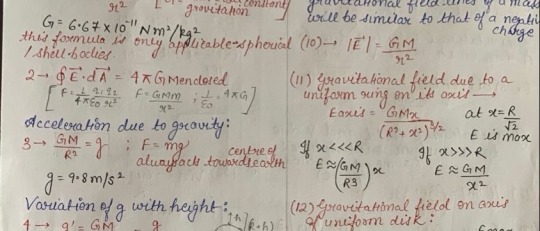

mostly free resources to help you learn the basics that i've gathered for myself so far that i think are cool
everyday
gcfglobal - about the internet, online safety and for kids, life skills like applying for jobs, career planning, resume writing, online learning, today's skills like 3d printing, photoshop, smartphone basics, microsoft office apps, and mac friendly. they have core skills like reading, math, science, language learning - some topics are sparse so hopefully they keep adding things on. great site to start off on learning.
handsonbanking - learn about finances. after highschool, credit, banking, investing, money management, debt, goal setting, loans, cars, small businesses, military, insurance, retirement, etc.
bbc - learning for all ages. primary to adult. arts, history, science, math, reading, english, french, all the way to functional and vocational skills for adults as well, great site!
education.ket - workplace essential skills
general education
mathsgenie - GCSE revision, grade 1-9, math stages 1-14, provides more resources! completely free.
khan academy - pre-k to college, life skills, test prep (sats, mcat, etc), get ready courses, AP, partner courses like NASA, etc. so much more!
aleks - k-12 + higher ed learning program. adapts to each student.
biology4kids - learn biology
cosmos4kids - learn astronomy basics
chem4kids - learn chemistry
physics4kids - learn physics
numbernut - math basics (arithmetic, fractions and decimals, roots and exponents, prealgebra)
education.ket - primary to adult. includes highschool equivalent test prep, the core skills. they have a free resource library and they sell workbooks. they have one on work-life essentials (high demand career sectors + soft skills)
youtube channels
the organic chemistry tutor
khanacademy
crashcourse
tabletclassmath
2minmaths
kevinmathscience
professor leonard
greenemath
mathantics
3blue1brown
literacy
readworks - reading comprehension, build background knowledge, grow your vocabulary, strengthen strategic reading
chompchomp - grammar knowledge
tutors
not the "free resource" part of this post but sometimes we forget we can be tutored especially as an adult. just because we don't have formal education does not mean we can't get 1:1 teaching! please do you research and don't be afraid to try out different tutors. and remember you're not dumb just because someone's teaching style doesn't match up with your learning style.
cambridge coaching - medical school, mba and business, law school, graduate, college academics, high school and college process, middle school and high school admissions
preply - language tutoring. affordable!
revolutionprep - math, science, english, history, computer science (ap, html/css, java, python c++), foreign languages (german, korean, french, italian, spanish, japanese, chinese, esl)
varsity tutors - k-5 subjects, ap, test prep, languages, math, science & engineering, coding, homeschool, college essays, essay editing, etc
chegg - biology, business, engineering/computer science, math, homework help, textbook support, rent and buying books
learn to be - k-12 subjects
for languages
lingq - app. created by steve kaufmann, a polygot (fluent in 20+ languages) an amazing language learning platform that compiles content in 20+ languages like podcasts, graded readers, story times, vlogs, radio, books, the feature to put in your own books! immersion, comprehensible input.
flexiclasses - option to study abroad, resources to learn, mandarin, cantonese, japanese, vietnamese, korean, italian, russian, taiwanese hokkien, shanghainese.
fluentin3months - bootcamp, consultation available, languages: spanish, french, korean, german, chinese, japanese, russian, italian.
fluenz - spanish immersion both online and in person - intensive.
pimsleur - not tutoring** online learning using apps and their method. up to 50 languages, free trial available.
incase time has passed since i last posted this, check on the original post (not the reblogs) to see if i updated link or added new resources. i think i want to add laguage resources at some point too but until then, happy learning!!
#study#education resources#resources#learning#language learning#math#english languages#languages#japanese#mandarin#arabic#italian#computer science#wed design#coding#codeblr#fluency#online learning#learn#digital learning#education#studyinspo#study resources#educate yourselves#self improvement#mathematics#mathblr#resource
288 notes
·
View notes
Text
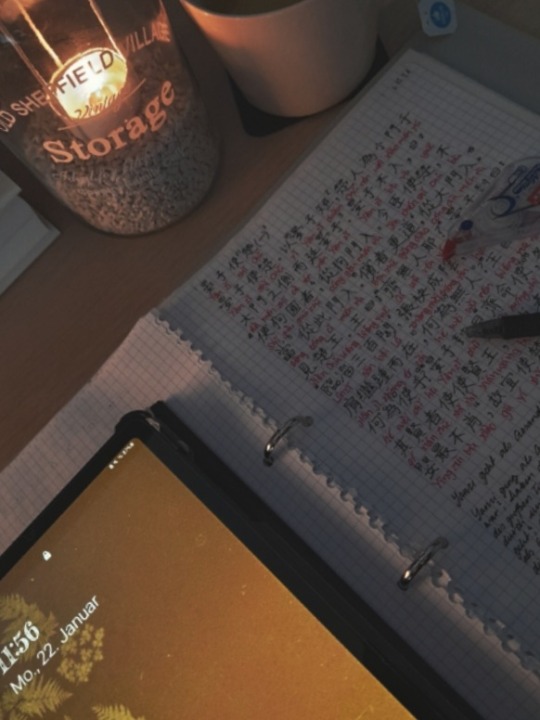



Working on traditional chinese again today,,,copying down the last couple translations then learning the necessary vocabulary. I got about a week left until the exams and my anxiety levels are skyrocketing.
Also all the snow just vanished overnight, which kinda bummed me out...🥲
#study blog#studyblr#university#chinese studies#student#student life#learning languages#study motivation#languages#mandarin
204 notes
·
View notes
Text
language learning culture is always watching children’s media in various languages
#benkyou posting#polyglot#langblr#studyblr#language learning#studying#studyinspo#i never watched toooo much childrens shows in japanese but right now my main mandarin study resource is a website made for kids to learn#one of the more advanced stories on the website is a kids version of journey to the west#im so excited to be able to watch that one some day#i do need to start reading (comics) though because im mostly just watching things as immersion in mandarin
458 notes
·
View notes
Text
The directional "下/上/出/去/来" puzzle guide
I for one still confuse the usage of 出来 and 出去 and other similar structures so here's a guide to slightly depuzzle this puzzle.
上去 (Shàngqù): To go up and away from the speaker
下去 (Xiàqù): To go down and away from the speaker
出去 (Chūqù): To go out and away from the speaker
出来 (Chūlái): To go out and towards the speaker
上来 (Shànglái): To go up and towards the speaker
下来 (Xiàlái): To go down and towards the speaker
过来 (Guòlái): To ask someone to come over to the speaker
过去 (Guòqù): This one is tricky as it can have a few meanings so here are some random examples.
Movement away from the speaker e.g. 我来这家公司工作已经过去五年了= I have been working in this company for the past five years
Movement in time during the past e.g. 过去的年份里,公园里有很多树和花= In the past years, there were many trees and flowers in the park
Here's an illustration I made (it's been a while lol) to make it less (?) confusing:

#chinese#chinese grammar#mandarin langblr#chinese studyblr#learn chinese#studyblr#college#slavic roots western mind#student life#aesthetic#travel blog#study motivation#student#college life#study blog#langblr#language#linguistics
182 notes
·
View notes
Text
Spent the entirety of Babel going "omg this reminds me of this" and the thing it reminds me of is a long list of jstor articles I've read at some point.
I enjoyed the book but I think I enjoyed it more because it wasn't anything new conceptually to me. I think it's an excellent tool for getting people to confront their relationship with colonialism and its violence, but with that comes the stages of grief. If you have never or never fully confronted this, sometimes you do need a moment to catch up.
If this book confronts you, I think reading it again after you have come to the acceptance stage of your relationship with colonialism enhances the ability to enjoy the book because you spend the entire time going "oh my god so true Rebecca"
#god i love this book#i think the fact i am studying mandarin actively enhanced my personal enjoyment#babel the necessity of violence#babel an arcane history#babel#rf Kuang#babel rf kuang#colonialism#bookblr
165 notes
·
View notes
Note
You know Mandarin??
sometime in the spring of this year i kept encountering the idea on other social media that chinese is impossible to learn for europeans, that it's too difficult, that no westerner can learn or truly understand it, and in combination with a mainland friend visiting and telling me the ancient chinese etymology of some basic characters (and the 白人饭 Lunch of Suffering meme) i got fed up/enchanted and did the extremely mentally healthy thing of teaching myself basic mandarin, through about ~april to july. at some points in may i remember coming home from work, scribbling characters in my mandarin notebook over and over, doing chores, going to sleep, and repeating the cycle. a taiwanese friend on here helped out with a lot (it's much, much easier if you have chinese friends to help you, however, i am really not about traditional, although i admit it's more beautiful) and baptized me with a chinese name.
i don't know mandarin, and at this point a lot of the characters i'd learned have faded from memory, but i insist that it's not actually difficult to learn chinese (up to a point— maybe HSK 3 or 4 is where it gets really difficult). in fact, learning chinese is really, really fun.
the difficulty lies in the fact that you have to do it every single day for at least an hour, probably for more (i spent pretty much all my free time on it, but there was something not normal going on with me then). you'd think, isn't that the case for every language? yet i don't remember doing daily french like that, and i consider some aspects of french conjugation/russian grammar much more difficult than what chinese throws at you at similar difficulty levels (good luck with motion verbs, non-slavic speakers). i found learning characters to be very, very easy. they're all distinct. if you learn them together with their etymology, looking at ancient chinese and how they developed along with associated idioms, it's endlessly rewarding. at least in the early levels, there's a bit of a system to how characters and words come together and increase in complexity—sometimes it's funny, sometimes it's cute. it's a breath of fresh air to start reading even basic sentences and idioms in a language so entirely different from anything you've experienced before. many people say speaking chinese is easier than reading/writing: in my experience, that's false. i barely started getting a grasp on the tonal system (my goal was to get to HSK 1 solely through written chinese); i remember listening to the same 2 minute audio clip of two people exchanging phone numbers for half an hour or something once before getting everything right. people say "chinese doesn't have grammar" but that's not true, because otherwise it won't be a language at all, though you don't have to learn any conjugations, declensions, etc. at HSK 1-2 you just throw a modifier/particle into a sentence and you're good to go.
the other main difficulty besides tones is that imo chinese culture is borderline impenetrable if you want to have a genuine stab at it (but for this you don't, necessarily, need to learn mandarin). you can learn HSK 1-2 in a few months or a semester, but it will take you years to genuinely understand the cultural context—there truly is no context clue or familiar idea you can latch on to, as opposed to when learning a european language/history, or even turkish, arabic, persian; there is nothing in common here, and if you guess, you'll probably wind up wrong. it all makes me think of how many journalists/experts get russia wrong: i now firmly do not believe a word of what people write about asia unless i find the author knows the language
anyway

#keep in mind of course i did not go past HSK1#i prefer simplified but seeing what they did to 門 makes one a rabid antimaoist#you get to understand the pò èr shǒu chē reel of the little chinese girl pointing at a porsche that goes around on instagram.#i truly wish china was somehow connected to what i study bc i cannot justify spending that much time on mandarin#unfortunately the harbin russians didn't bother with chinese#smth else about this blog is that india is likewise impenetrable to me. the sheer historical and geographic scale is unbearably intimidatin#where does one even start?#ed* ^ i know the basic 101 historical outlines but i don't think that's “knowing” a place
67 notes
·
View notes
Text
Monday 15th | 21/100 days of productivity₊ 。˚⊹
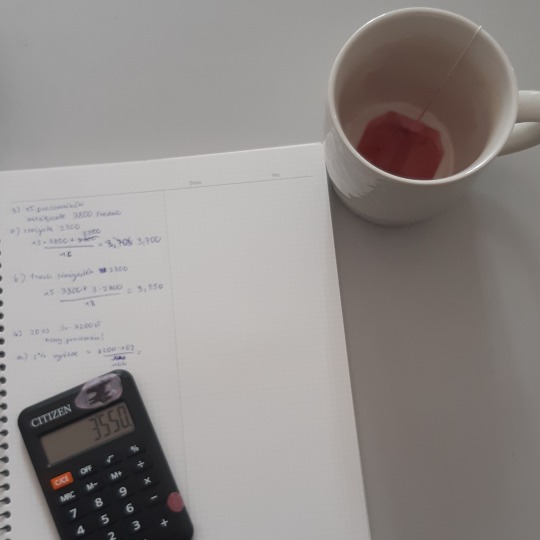

Revise French flashcards [5m]
Revise Japanese flashcards [5m]
Study for history test (4/3) [1h]
Listen to Japanese TV in the bg [30m]
Print mockup for paintings > got approved yay!
Finish making portfolio [10m]
Revise before English quiz, make flashcards [15m]
Read The Body Keeps The Score [30m]
Word of the day: to bloom; blossom -> flower bloomed
fr: fleurir [-ir verb] -> la fleur a fleuri
jp: 咲く [さく] -> 花が咲いた [はながさいた]
cn: 开花 [kāihuā] -> 花朵开花 [huāduǒ kāihuā]
nl: bloeien -> bloem bloeide
🎧₊ ˚⊹ raindrop city - lamp
#figured I'd do the word of the day if I have nothing to share lol#study blog#studyblr#study motivation#chaotic academia#100 days of productivity#100 days challenge#study#study tumblr#academic validation#academic weapon#langblr#french lang#french langblr#french language#japanese langblr#japanese language#languages#linguistics#mandarin#chinese#mandarin chinese#japanese#dutch#dutch language
34 notes
·
View notes
Text
Speak DECENT CHINESE in 4 months - 8 easy tips
______
1. Have someone to guide you to get good pronunciation habits. It is almost impossible to re-learn bad habits later so make sure you get your pronunciation right from the beginning. I mean the pronunciation of the sounds, not the tones. Tones take more time to get used to and you can't rush it - but try the best you can. Some tutors don't bother too much about the pronunciation so make sure you find someone who is strict about that, you will be grateful later. Also get confident in pinyin, you will need it.
2. Understand the composition of the sentences. The word order is super easy and it stays the same all the time (the question and informative sentences have the same word order). I have a formula for the word order but I won't reveal it here, it is one of the secrets I keep for my students and people who use my materials.
3. Understand that there are no tenses in the sense we think about them in English and other languages. Learn to express future, potential future, finished action, change of state, experience in the past and circumstances of the event. See the difference between action verbs and verbs of state.
4. Learn to use modal verbs and conjuctions.
5. Build usable vocabulary based on the fact that everything in Chinese is interconnected.
6. Understand 就, 才,的 and 得
7. Don't learn grammar rules and words separately. Learn functional practical sentences that will serve you as examples of the grammar structures (then you just need to change the words in these sentences).
8. Develop your listening skills - that is very important. For that there are Youtube channels and podcasts on Spotify (and in my materials the audio part also plays an important role). You can listen to Chinese radio stations just to get the feeling of the language.
______
After 3-4 months you should feel pretty confident in normal conversations if you study regularly under competent guidance.
______
R-evolutionary learning materials and resources: https://linktr.ee/chineseffect
MAGIC PLAYBOOK for beginners
#learn chinese#learn mandarin#chinese langblr#mandarin langblr#edublr#mandarin#chinese#mandarin edublr#langblr#chinese vocabulary#mandarin chinese#chinese edublr#learning mandarin#learning chinese#study chinese#mandarin vocabulary#study mandarin#汉语#chinese studyblr#beginners chinese#chinese for beginners#learning tips#chinese tips#mandarin tips
245 notes
·
View notes
Text
looking for mandarin show/movie recommendations plsss
i currently watch street dance of china and used to watch the chuang series but i dont know how to branch away from the competition/survival shows
#studyblr#study blog#langblr#langblog#language learning#languageblr#chinese langblr#mandarin langblr#learning mandarin#chinese studyblr#learning chinese#learn chinese#chinese language#mandarin chinese#mandarin studyblr#mandarin study#learn mandarin#mandarin
77 notes
·
View notes
Text
Hello! *shyly waving*
I've had this blog for a lil while and want to start posting original content asap but for now I'll try to make an intro post fisrt.
My blog is running on queue untill I gather some material to post. See you soon!
#studyblr#langblr#studyspo#study inspo#japanese#nihongo#korean#chinese#mandarin#study motivation#study notes#study space#language learning#language#languages#college#academia#student#bookworm#bujoinspo#study blog#study inspiration#study tips#studying#studyblr community#studyinspo#student life#study aesthetic#mine
28 notes
·
View notes
Text
75 essential single-character verbs (单字动词)

When I started consuming more native Chinese content, I quickly discovered an area in which my knowledge was lacking: single-character verbs. In my experience, it’s very easy to focus on learning words consisting of two or more characters and overlook single-character words.
Driven by curiosity, I went through my Anki deck (and also wracked my brain) to generate a list of characters/words that I have learned over the past couple years (roughly). Then I selected 75 verbs that are fairly common and important to know. They skew towards intermediate and advanced vocabulary.
Definitions are from MDBG. For characters with additional meanings that I am not yet familiar with, I have bolded the meanings I want to share.
(1) 抢 qiǎng - to fight over / to rush / to scramble / to grab / to rob / to snatch
(2) 救 jiù - to save / to assist / to rescue
(3) 扶 fú - to support with the hand / to help sb up / to support oneself by holding onto something / to help
(4) 催 cuī - to urge / to press / to prompt / to rush sb / to hasten sth / to expedite
(5) 夹 jiā - to press from either side / to place in between / to sandwich / to carry sth under armpit / wedged between / between / to intersperse / to mix / to mingle / clip / folder / Taiwan pr. [jia2]
(6) 咬 yǎo - to bite / to nip
(7) 砸 zá - to smash / to pound / to fail / to muck up / to bungle
(8) 毁 huǐ - to destroy / to ruin / to defame / to slander
(9) 嚷 rǎng - to shout / to bellow / to make a big deal of sth / to make a fuss about sth
(10) 塞 sāi - to stop up / to squeeze in / to stuff / cork / stopper
(11) 贪 tān - to have a voracious desire for / to covet / greedy / corrupt
(12) 拆 chāi - to tear open / to tear down / to tear apart / to open
(13) 掏 tāo - to fish out (from pocket) / to scoop
(14) 跪 guì - to kneel
(15) 摘 zhāi - to take / to borrow / to pick (flowers, fruit etc) / to pluck / to select / to remove / to take off (glasses, hat etc)
(16) 拎 līn - to lift up / to carry in one's hand / Taiwan pr. [ling1]
(17) 扛 káng - to carry on one's shoulder / (fig.) to take on (a burden, duty etc)
(18) 拽 zhuài - to pull / to tug at (sth)
(19) 愣 lèng - to look distracted / to stare blankly / distracted / blank / (coll.) unexpectedly / rash / rashly
(20) 搂 lǒu - to hug / to embrace / to hold in one's arms
(21) 垮 kuǎ - to collapse (lit. or fig.)
(22) 撑 chēng - to support / to prop up / to push or move with a pole / to maintain / to open or unfurl / to fill to bursting point / brace / stay / support
(23) 甩 shuǎi - to throw / to fling / to swing / to leave behind / to throw off / to dump (sb)
(24) 围 wéi - to encircle / to surround / all around / to wear by wrapping around (scarf, shawl)
(25) 愁 chóu - to worry about
(26) 插 chā - to insert / stick in / pierce / to take part in / to interfere / to interpose
(27) 漏 lòu - to leak / to divulge / to leave out by mistake / waterclock or hourglass (old)
(28) 披 pī - to drape over one's shoulders / to open / to unroll / to split open / to spread out
(29) 歇 xiē - to rest / to take a break / to stop / to halt / (dialect) to sleep / a moment / a short while
(30) 抄 chāo - to make a copy / to plagiarize / to search and seize / to raid / to grab / to go off with / to take a shortcut / to make a turning move / to fold one's arms
(31) 哼 hēng - to groan / to snort / to hum / to croon / humph!
(32) 哄 hǒng - to deceive / to coax / to amuse (a child)
(33) 啃 kěn - to gnaw / to nibble / to bite
(34) 眯 mī - to narrow one's eyes / to squint / (dialect) to take a nap
(35) 趴 pā - to lie on one's stomach / to lean forward, resting one's upper body (on a desktop etc) / (Tw) percent
(36) 揍 zòu - to hit / to beat (sb) / (coll.) to smash (sth)
(37) 蹭 cèng - to rub against / to walk slowly / (coll.) to freeload
(38) 凑 còu - to gather together, pool or collect / to happen by chance / to move close to / to exploit an opportunity
(39) 敲 qiāo - to hit / to strike / to tap / to rap / to knock / to rip sb off / to overcharge
(40) 滑 huá - to slip / to slide / slippery / smooth / sly / slippery / not to be trusted
(41) 碎 suì - to break down / to break into pieces / fragmentary
(42) 盯 dīng - to watch attentively / to fix one's attention on / to stare at / to gaze at
(43) 塌 tā - to collapse / to droop / to settle down
(44) 背 bēi - to be burdened / to carry on the back or shoulder
背 bèi - the back of a body or object / to turn one's back / to hide something from / to learn by heart / to recite from memory / unlucky (slang) / hard of hearing
(45) 数 shǔ - to count / to count as / to regard as / to enumerate (sb's shortcomings)
(46) 按 àn - to press / to push / to leave aside or shelve / to control / to restrain / to keep one's hand on / to check or refer to / according to / in the light of / (of an editor or author) to make a comment
(47) 压 yā - to press / to push down / to keep under (control) / pressure
(48) 亲 qīn - parent / one's own (flesh and blood) / relative / related / marriage / bride / close / intimate / in person / first-hand / in favor of / pro- / to kiss / (Internet slang) dear
(49) 补 bǔ - to repair / to patch / to mend / to make up for / to fill (a vacancy) / to supplement
(50) 舔 tiǎn - to lick / to lap
(51) 拼 pīn - to piece together / to join together / to stake all / adventurous / at the risk of one's life / to spell
(52) 埋 mái - to bury
(53) 抖 dǒu - to tremble / to shake out / to reveal / to make it in the world
(54) 涂 tú - to apply (paint etc) / to smear / to daub / to blot out / to scribble / to scrawl / (literary) mud / street
(55) 抹 mǒ - to smear / to wipe / to erase / classifier for wisps of cloud, light-beams etc
(56) 吞 tūn - to swallow / to take
(57) 拦 lán - to block sb's path / to obstruct / to flag down (a taxi)
(58) 露 lòu - to show / to reveal / to betray / to expose
露 lù - dew / syrup / nectar / outdoors (not under cover) / to show / to reveal / to betray / to expose
(59) 滚 gǔn - to boil / to roll / to take a hike / Get lost!
(60) 扣 kòu - to fasten / to button / button / buckle / knot / to arrest / to confiscate / to deduct (money) / discount / to knock / to smash, spike or dunk (a ball) / to cover (with a bowl etc) / (fig.) to tag a label on sb / (Tw) (loanword) code
(61) 夸 kuā - to boast / to exaggerate / to praise
(62) 挥 huī - to wave / to brandish / to command / to conduct / to scatter / to disperse
(63) 求 qiú - to seek / to look for / to request / to demand / to beseech
(64) 吸 xī - to breathe / to suck in / to absorb / to inhale
(65) 响 xiǎng - echo / sound / noise / to make a sound / to sound / to ring / loud / classifier for noises
(66) 擦 cā - to wipe / to erase / rubbing (brush stroke in painting) / to clean / to polish
(67) 踩 cǎi - to step on / to tread / to stamp / to press a pedal / to pedal (a bike) / (online) to downvote
(68) 撕 sī - to tear
(69) 扫 sǎo - to sweep
(70) 锁 suǒ - to lock / to lock up / a lock (CL:把)
(71) 扎 zhā - to prick / to run or stick (a needle etc) into / mug or jug used for serving beer (loanword from "jar")
(72) 撞 zhuàng - to knock against / to bump into / to run into / to meet by accident
(73) 追 zhuī - to chase / to pursue / to look into / to investigate / to reminisce / to recall / to court (one's beloved) / to binge-watch (a TV drama) / retroactively / posthumously
(74) 抽 chōu - to draw out / to pull out from in between / to remove part of the whole / (of certain plants) to sprout or bud / to whip or thrash
(75) 删 shān - to delete
#vocab list#chinese#mandarin#mandarin chinese#chinese language#studyblr#langblr#language study#learning languages#language learning#chinese studyblr#chinese langblr#mandarin studyblr#mandarin langblr#study chinese#study mandarin#learn chinese#learn mandarin#studying chinese#learning chinese#studying mandarin#learning mandarin#chinese vocab#mandarin vocab#foreign languages#language#languages#language blog#languageblr#language stuff
760 notes
·
View notes
Text
Month wrap-up
Korean: 383 words this month, the biggest amount this year! This was my main focus this month. Picks of my favorite words from this month:
교대 交代 - taking turns
당청되다 當籤- - to win the lottery
마땅히 - properly
석화 石花 - oyster
일당백 一當百 - equal to 100 warriors
출하 出荷 - shipment
Japanese: only 57 words this time! I feel like I've studied more though. I've gotten better at listening! Favorite words:
いれい 慰霊 - consoling the dead
しけ 時化 - stormy weather at sea
でんち 電池 - battery
よてい 予定 - plans
Mandarin and Cantonese: I haven't focused on these much this month. However I've been listening to both languages a bunch.
Mongolian: I haven't logged the words I know because I'm learning it with a different approach. But I've been studying it a lot and am learning a bunch of new words!
Toki Pona: I can now understand written text 99% of the time. I should practice writing next.
Okinawan: I've learn the Okinawan version of every Japanese word I've studied this month. I'm progressing steadily.
Other languages: I've been learning random words from other languages too. Notably Hungarian (Which I haven't learned at all in the past). Maybe I should start studying it regularly!

#langblr#language#korean#한국어#日本語#日本語勉強#mongolian#монгол хэл#toki pona#mandarin#cantonese#okinawan#hungarian#うちなーぐち#log#study blog#word list#studyblr
77 notes
·
View notes
Text

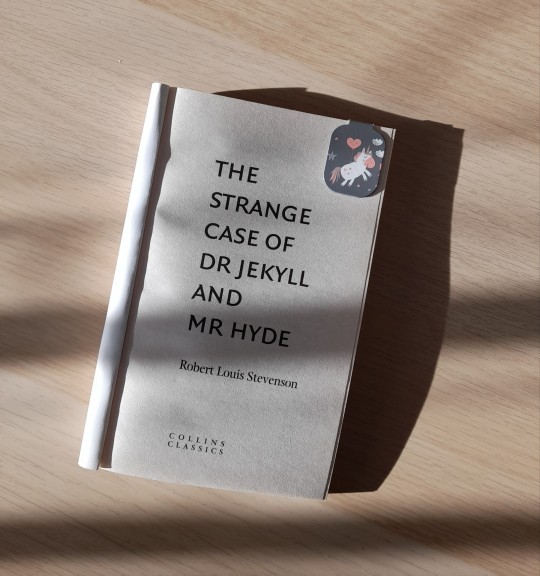
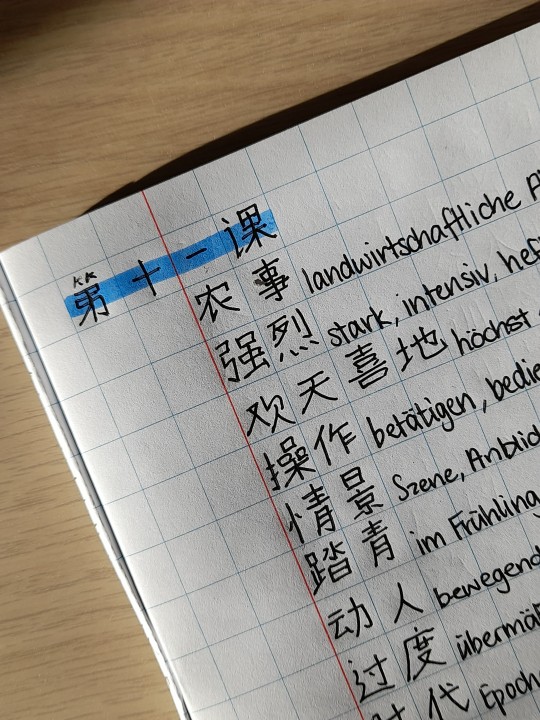
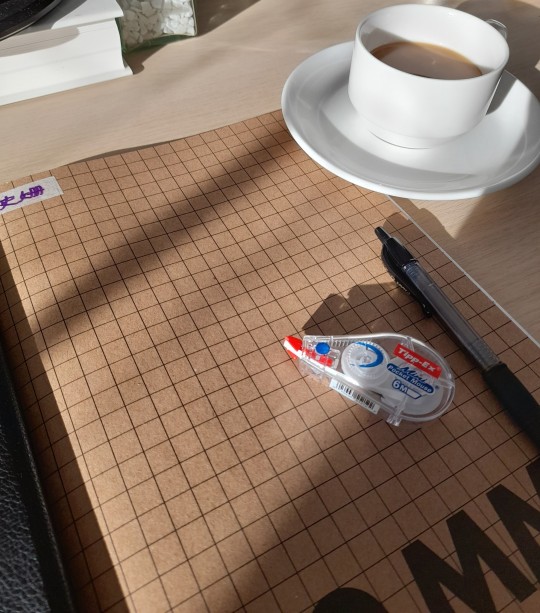
Didn't do much yesterday and started learning wayyy past the time I'd originally planned but hey better late than never.
Also decided to try and read some 'classics',,,hope I won't be disappointed <3
#study blog#studyblr#university#chinese studies#student#student life#learning languages#study motivation#languages#mandarin
56 notes
·
View notes